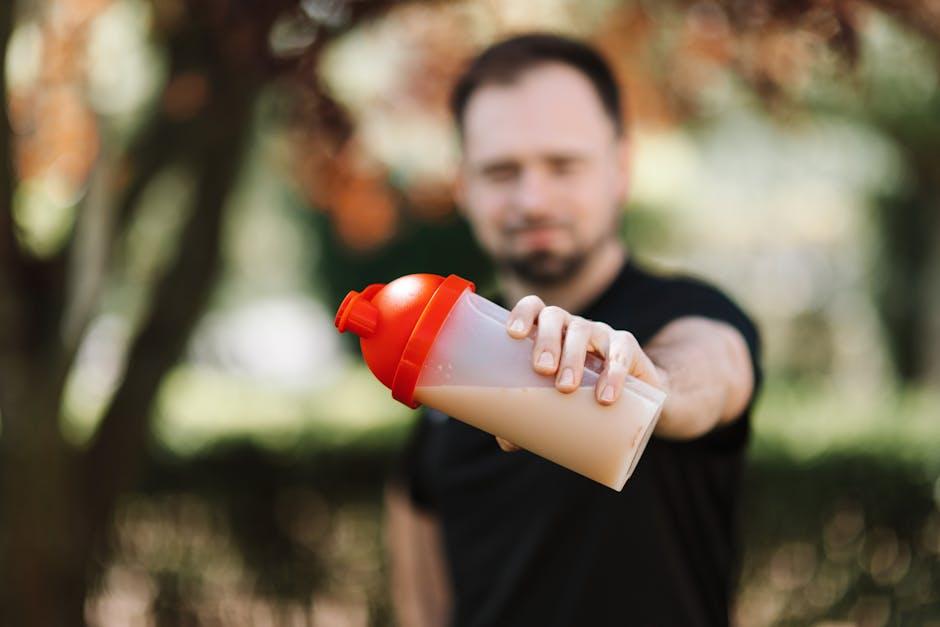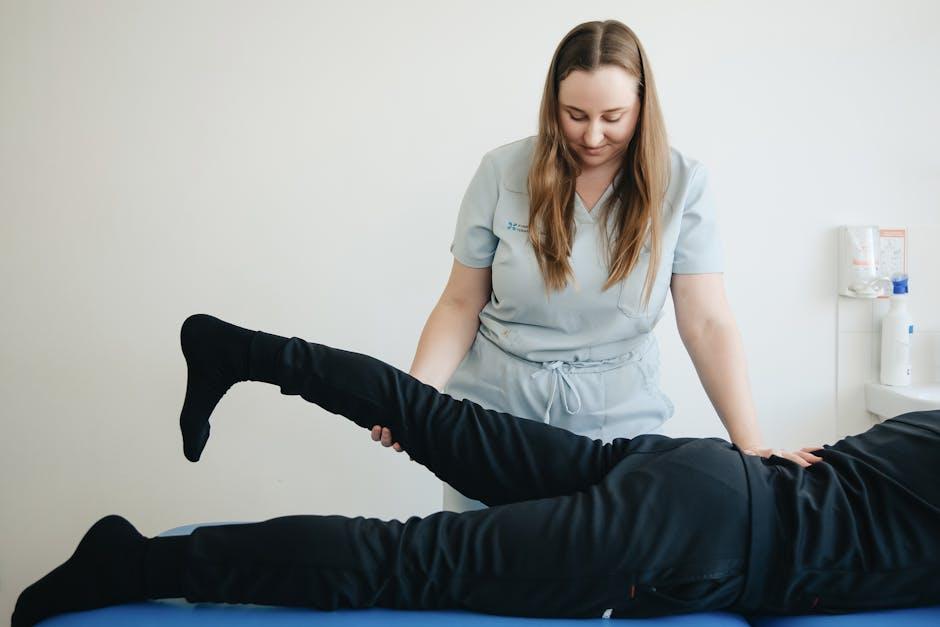In the ever-evolving landscape of fitness, where personal records are shattered and boundaries continuously pushed, the art of recovery emerges as a crucial counterpart to exertion. Imagine a world where the intensity of your workout is perfectly matched by the serenity of your recovery. This balance, often overlooked, is the secret ingredient to not only achieving peak performance but also sustaining it. Whether you’re a seasoned athlete or a fitness enthusiast, understanding and embracing recovery techniques can transform your post-workout experience, enhancing both body and mind. Join us as we delve into the science and art of recovery, exploring methods that soothe, repair, and invigorate, ensuring that your journey towards fitness is both sustainable and rewarding.
Maximizing Muscle Repair Through Nutrition
In the quest for optimal recovery, what you consume post-workout plays a pivotal role in muscle repair and growth. To enhance the body’s natural healing process, it’s essential to incorporate a balance of proteins, carbohydrates, and healthy fats into your diet. Protein, being the cornerstone of muscle repair, should be prioritized. Consider foods like grilled chicken, tofu, or a protein shake to provide your muscles with the necessary amino acids. Carbohydrates are equally crucial as they replenish glycogen stores, with options such as sweet potatoes, quinoa, or whole grain pasta being excellent choices. Lastly, don’t overlook healthy fats; avocados, nuts, and olive oil can help reduce inflammation and support overall recovery.
Moreover, certain micronutrients and supplements can further amplify recovery efforts. Incorporate foods rich in vitamin C and zinc, such as citrus fruits and pumpkin seeds, to support the immune system and aid tissue repair. Omega-3 fatty acids found in fatty fish like salmon or in flaxseeds can also be beneficial in reducing muscle soreness. For those looking to supplement, consider creatine or branched-chain amino acids (BCAAs), which have been shown to enhance recovery and muscle synthesis. Remember, the timing of your meals is just as important; aim to consume your recovery meal within an hour post-exercise to maximize these benefits.
Harnessing the Power of Rest and Sleep
In the realm of athletic performance, rest and sleep are often the unsung heroes. While rigorous workouts push your body to its limits, it is during rest that true recovery and growth occur. A consistent sleep schedule not only repairs muscles but also rejuvenates the mind, preparing you for the challenges of another day. To maximize the benefits of rest, consider incorporating the following practices into your routine:
- Create a Sleep Sanctuary: Transform your bedroom into a haven of tranquility by minimizing noise, using blackout curtains, and maintaining a cool temperature.
- Prioritize Sleep Hygiene: Establish a calming pre-sleep routine, such as reading or meditating, and avoid screens at least an hour before bedtime.
- Nap Wisely: Short, power naps can be beneficial, but avoid long naps late in the day to prevent disrupting your nighttime sleep cycle.
Embracing these strategies can significantly enhance recovery, allowing your body to harness its full potential. Remember, quality rest is as crucial as the workouts themselves, forming the foundation of a balanced fitness journey.

The Role of Hydration in Post-Workout Recovery
In the aftermath of an intense workout, the body embarks on a journey of repair and rejuvenation, and hydration plays a pivotal role in this process. Water is not merely a thirst quencher; it is a fundamental component in the intricate dance of recovery. Proper hydration helps regulate body temperature, lubricates joints, and aids in transporting nutrients to cells, which are all crucial for efficient muscle repair.
- Replenishing Fluids: During exercise, sweat leads to fluid loss. Replacing these lost fluids is essential to maintain blood volume and prevent fatigue.
- Electrolyte Balance: Hydration goes beyond water. Electrolytes like sodium, potassium, and magnesium need replenishment to avoid cramps and maintain nerve function.
- Enhancing Protein Synthesis: Adequate hydration supports the body’s ability to utilize proteins effectively, essential for muscle recovery and growth.
Incorporating a hydration strategy tailored to your workout intensity and duration can significantly enhance recovery, ensuring you’re ready to tackle your next fitness challenge with vigor.

Stretching and Mobility Exercises for Optimal Recovery
After a grueling workout, incorporating stretching and mobility exercises into your recovery routine can make a significant difference in how your body feels and performs. These exercises not only aid in reducing muscle stiffness but also enhance flexibility and joint range of motion, ensuring you’re ready for your next session. Consider the following practices to optimize your recovery:
- Dynamic Stretching: Engage in gentle, controlled movements like leg swings and arm circles to maintain mobility and promote blood flow to the muscles.
- Foam Rolling: Use a foam roller to release muscle tightness and improve circulation, which helps reduce soreness and accelerates recovery.
- Yoga Poses: Incorporate poses such as the downward dog and pigeon pose to stretch and strengthen various muscle groups while calming the mind.
- PNF Stretching: Try proprioceptive neuromuscular facilitation by contracting and relaxing muscles to enhance flexibility.
Integrating these exercises into your post-workout routine can transform how you recover, allowing your body to repair and grow stronger with each session. Remember, consistency is key to reaping the benefits of enhanced recovery through stretching and mobility.
Final Thoughts
As the sweat of exertion dries and the echoes of effort fade, the journey of recovery begins—a crucial yet often underestimated chapter in the story of fitness. Just as a masterful artist knows the importance of a clean canvas, the dedicated athlete understands the need to restore and rejuvenate the body. From the quiet calm of deep breathing to the gentle embrace of a restorative stretch, these recovery techniques are not mere afterthoughts but vital brushstrokes in the masterpiece of physical well-being. So, as you lace up for your next session, remember that the power of progress is found not only in the intensity of your workout but also in the wisdom of your recovery. Embrace it, nurture it, and watch as your body responds with resilience and renewed vigor.


































